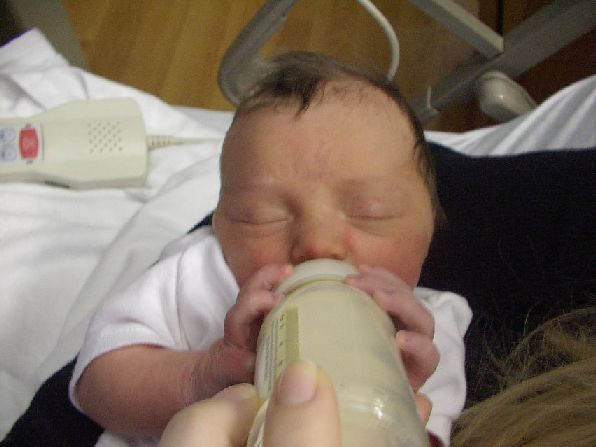Postpartum Depression Spotted On Twitter? Microsoft Studies Tweets To Identify Depressed Moms

Once called the "baby blues," postpartum depression affects approximately one in seven mothers during their first year after childbirth.
For severe, long-lasting forms of depression, symptoms can include insomnia, loss of appetite, difficulty bonding with your child, and thoughts of harming yourself and your child. Tired and busy changing diapers, many new moms fail to recognize these symptoms, assuming that every mother feels the same way.
But could we learn from what new mothers post on social media sites that might suggest they're suffering from postpartum mood disorder (PPMD)?
Microsoft researchers asked that very question, and they're starting with Twitter. In order to investigate whether Twitter can spot signs of postpartum depression in new mothers based on changes in their tweets, researchers are working to develop unobtrusive diagnostic tools that analyze people's social media posts for indicators of PPMD.
By running social media activity through an analysis tool, researchers hope to help thousands of new moms get a better sense of whether they might be suffering from PPMD.
None of the new mothers were ever actually contacted during the study to confirm their participation or any of the researchers' assessments. To find women for their study, researchers sifted through thousands of tweets published between June 2011 and April 2012, explained Eric Horvitz, managing co-director of the Microsoft Research lab, to Scientific American. Their automated program searched phrases and keywords that suggested a woman had recently given birth, such as tweets describing labor and listing the height and weight of a baby.
After creating an initial pool of candidates, the researchers identified the gender of the tweeter and then, to distinguish between tweets made by new mothers and those made by female family and friends, they went to Amazon's Mechanical Turk digital labor marketplace for workers to analyze a candidate's birth-announcement posting in the context of her tweets before and after the birth.
Once they identified the new mothers among their Twitter users, Microsoft Research examined several months of tweets for each. The researchers noted in some users a drop in positive expressions and an increase in negative words associated with anger, anxiety and sadness as well as more frequent use of first-person pronouns. Such indicators may signal isolation and an increasing focus on themselves, consistent with the symptoms of PPMD.
Now, to see how their predictive modeling holds up in a population of women including those who have been professionally diagnosed with postpartum depression, Microsoft Research has begun to work with experts in postpartum depression at the University of Washington and elsewhere, Horvitz explained.
Although Horvitz admits the limitations of his study, he hopes these predictive models might someday be used to help design early warning systems, such as apps installed on smartphones, tablets, and computers, to monitor tweets, flag signs of risk, and then offer assistance to women who might otherwise suffer quietly.
Although for some mothers, data mining their social media posts for behavioral health clues is a serious breach of privacy, for others it may be a godsend. Efforts to help women recognize their situation and encourage them to seek help would be welcome and beneficial to many families.
"Postpartum depression is believed to be a very underreported condition," Horvitz told Scientific American.



























